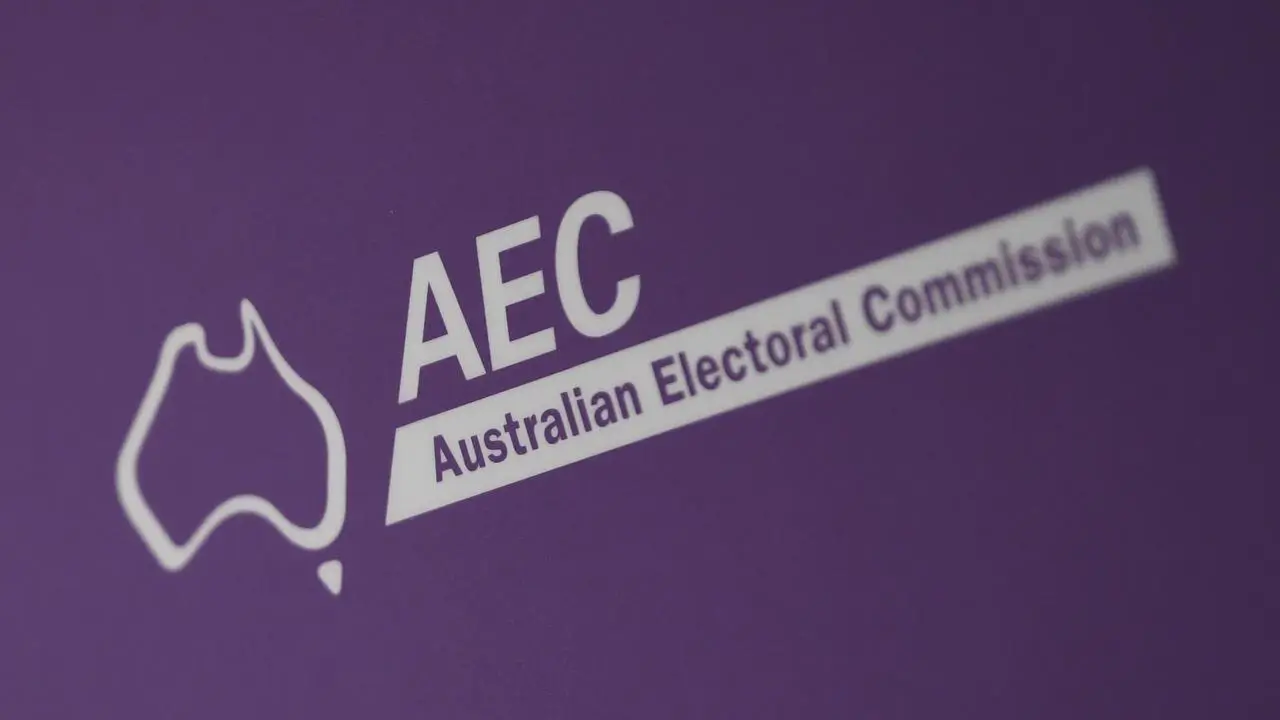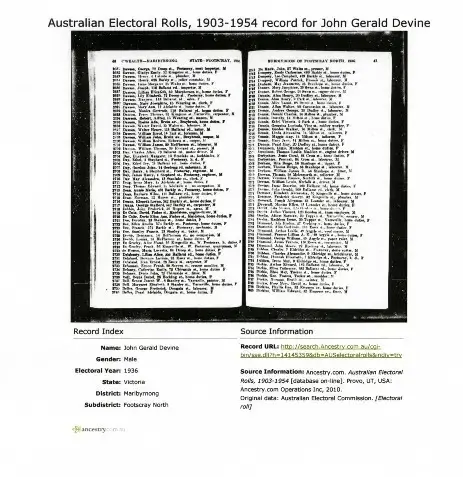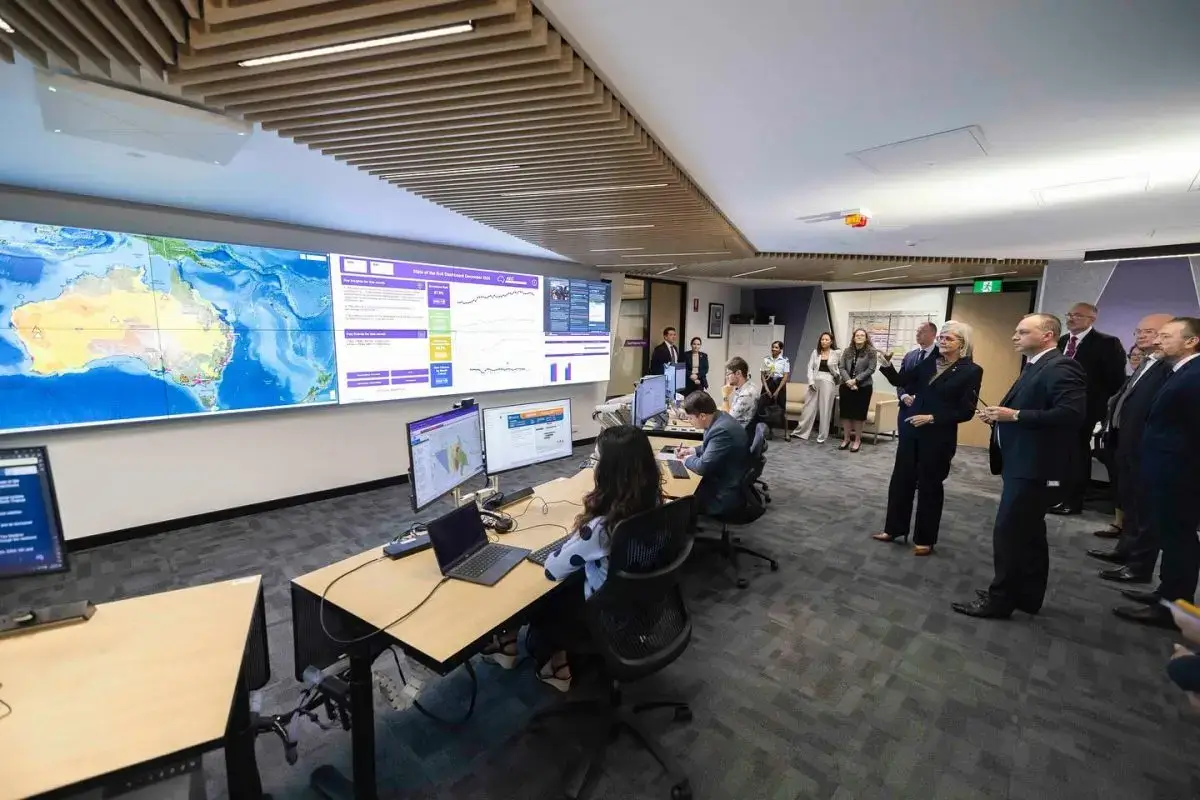Finding someone on Australia's electoral roll isn't as straightforward as you might think. With strict privacy laws protecting voter information, the days of thumbing through public books at the local council are long gone. This comprehensive guide walks through what's legally possible, what's not, and the most effective workarounds in 2025.

Can You Legally "Look Someone Up" on the Electoral Roll?
For most Australians, the short answer is no-at least not without significant restrictions. Gone are the days when anyone could walk into a government office and freely browse through voter registers. Today's electoral roll access is governed by strict privacy provisions designed to balance democratic transparency with individual privacy rights.
The primary concern driving these restrictions is preventing misuse of personal information. Electoral rolls contain home addresses, full names, and other data that could potentially be exploited for identity theft, stalking, or commercial exploitation.
Privacy Rules Under the Commonwealth Electoral Act
The Commonwealth Electoral Act 1918 (as amended) establishes the basic framework for electoral roll access. Section 90B specifically prohibits the use of enrolled information for unauthorized commercial purposes. The Australian Electoral Commission (AEC) administers these provisions with increasing stringency.
Key privacy protections include:
- Silent elector provisions: Individuals with legitimate personal safety concerns can apply for "silent elector" status, which completely removes their address from publicly viewable rolls
- Limited public access points: Physical rolls are only available at designated AEC offices, not online
- Address verification requirement: The AEC's online verification tool requires you to already know both the person's name AND address
- Usage restrictions: Legally accessed roll information cannot be copied, digitized, or shared beyond specific authorized purposes
Who Can Access Full Rolls (Journalists, Candidates, Lawyers)
While general public access is restricted, certain individuals and organizations retain broader access rights under the law. These authorized users include:
- Members of Parliament and Senators: Federal and state representatives can access full rolls for communication with constituents
- Registered political parties: For legitimate electoral activities
- Electoral candidates: Limited access during campaign periods
- Medical researchers: With formal ethics approval for specific health studies
- Approved academic researchers: Under strict data usage agreements
- Accredited journalists: For specific electoral reporting purposes only
- Legal practitioners: For litigation purposes with appropriate affidavits
- Government agencies: Including ATO, Centrelink, and certain law enforcement agencies with formal requests
Even these authorized users face strict limitations on how they can use electoral information. For example, MPs cannot use roll data for commercial purposes or share it with unauthorized third parties. Journalists must demonstrate a clear public interest justification for accessing specific records.
Penalties for Misuse
The AEC and state electoral commissions actively monitor and enforce electoral roll privacy provisions. Misuse can result in substantial penalties:
- Civil penalties: Up to 1,000 penalty units (A$26,640 as of May 2025) for individuals
- Corporate penalties: Up to 5,000 penalty units (A$133,200) for organizations
- Criminal charges: Serious privacy breaches can result in prosecution with penalties including imprisonment up to 2 years
- Professional consequences: Authorized users like lawyers or researchers may face additional disciplinary action from their professional bodies
In 2024, a Victorian real estate agency was fined A$66,600 after agents systematically used electoral roll information to identify and target potential sellers. Similarly, a private investigator in Queensland received a 6-month suspended sentence for improperly accessing and selling electoral roll information.
The key is to visit the relevant state or territory's electoral commission office in person. You will need to provide identification and state a valid reason for your request. The specific procedures vary, but generally, you can only inspect the roll and take handwritten notes.
At a Glance: Electoral Roll Access in 2025
Public Access:
- General public can only verify a specific person's enrollment if you already know their name AND address
- No general browsing or searching by name only
- Must visit AEC offices in person to view physical rolls with supervision
Authorized Access:
- MPs, candidates, and political parties have broader but still regulated access
- Journalists, researchers, and legal practitioners with legitimate purposes
- Government agencies through formal channels
Source: Australian Electoral Commission, Electoral Roll Access Guidelines
National Options: AEC Public Search, Historical Rolls & FOI
Despite the limitations, several national-level approaches can help you confirm if someone is on the electoral roll. Each has specific requirements and limitations you should understand before proceeding.
Using the AEC "Check My Enrolment" Tool (Name + Address Required)
The AEC's Online Enrolment Verification tool is the most accessible official option. However, it has one major limitation: you must already know both the person's full name AND current address. The system is designed for personal verification, not for finding someone's details.
The tool works as follows:
- Visit the Check Enrolment page on the AEC website
- Enter the person's full name, address, and suburb
- If the details match AEC records, you'll receive confirmation they're enrolled
- If details don't match, you'll see a "not found" message (which could mean incorrect information or that they're not enrolled)
This tool is primarily useful for confirming a person's enrollment status when you already have their current details, making it less helpful for actually locating someone. It cannot be used to browse names or search by partial information.

Visiting the National Library or State Libraries for Past Rolls
Historical electoral rolls can be a valuable resource, especially for genealogical research or locating long-lost contacts. Unlike current rolls, historical records face fewer privacy restrictions once they reach a certain age.
The National Library of Australia in Canberra maintains the most comprehensive collection of historical electoral rolls, with records dating back to 1901. Most state libraries also maintain substantial collections of historical rolls relevant to their jurisdiction.
Key points for accessing historical rolls:
- Time restrictions: Generally, rolls older than 30 years are more accessible
- Format variations: Older rolls may be available on microfiche, microfilm, or as physical books
- Digital access: Some libraries have digitized portions of their collections, but this varies widely
- Ancestry.com access: Many libraries offer free access to Ancestry.com, which has digitized certain historical Australian electoral rolls from 1903 to 1980
- Location requirements: In most cases, you must visit the library in person to access these records
For genealogical research, the National Archives of Australia can also provide valuable electoral information through their collection of citizenship records, which often note electoral enrollment details.
Freedom-of-Information Requests: When They Work, When They Don't
Freedom of Information (FOI) requests represent a formal legal pathway to access certain government-held information. However, they have significant limitations when it comes to electoral roll data.
The Freedom of Information Act 1982 gives Australians the right to request access to government documents. However, Section 7 of the Act specifically exempts electoral roll information from standard FOI provisions. This exemption reflects the special privacy considerations given to voter registration data.
FOI requests may be effective in these limited scenarios:
- Your own information: Requesting your personal enrollment history
- Statistical data: De-identified enrollment statistics for research
- Process documentation: Information about how electoral rolls are maintained
- Historical records: Older electoral information that may have fewer restrictions
FOI requests are unlikely to succeed for:
- Current address lookup: Finding someone's current enrollment details
- Bulk data requests: Attempting to access multiple records
- Silent elector information: Details about protected enrollments are strictly exempt
To make an FOI request to the AEC, you must submit a formal application through their FOI portal. Processing fees may apply, and responses typically take 30 days or longer. Be prepared to clearly justify your request in terms of public interest or personal need.
State-by-State Walk-Throughs
While the AEC maintains the federal electoral roll, each state and territory also maintains its own roll for local and state elections. These are generally synchronized through data-sharing agreements, but access procedures can vary by jurisdiction. Here's how to navigate each state's system.
Queensland: How to Find Someone on the Electoral Roll QLD
The Electoral Commission of Queensland (ECQ) maintains the state roll with provisions that mirror federal restrictions but with a few Queensland-specific options.
Key Queensland access points:
- ECQ offices: The Brisbane head office (Level 20, 1 Eagle Street) provides supervised access to physical rolls during business hours
- Queensland State Archives: Historical rolls dating back to the 1860s are available for research purposes
- Court registries: During active election periods only, certified rolls are available for inspection at major court registries throughout the state
Queensland's system has two noteworthy features:
- Legal proceedings exception: The Queensland Electoral Act allows broader access for certain legal procedures, including debt recovery and family law matters with appropriate court documentation
- Local government variations: Brisbane City Council and some regional councils maintain supplementary rolls that include non-citizen residents eligible for council elections
For legal professionals in Queensland, the Queensland Law Society provides a dedicated protocol for members to request electoral information for legitimate client matters through their member portal.
New South Wales: Electoral Roll Access NSW
The NSW Electoral Commission (NSWEC) administers roll access with some of the strictest protocols in Australia. Their Sydney office (Level 3, 231 Elizabeth Street) is the primary access point for physical roll inspection.
NSW offers these specific pathways:
- Authorized representatives: Legal practitioners with proper documentation can apply for specific roll extracts for court proceedings
- State Library NSW: Houses an extensive collection of historical NSW rolls from 1842-1984
- Local council offices: During council elections only, certain roll information becomes available for inspection
Unique to NSW is the "Approved Research" program. This formal application process allows academic and medical researchers to access de-identified roll data for legitimate research projects. Applications require university ethics committee approval and detailed data security plans.
For finding individuals, NSW offers slightly more flexible verification than the federal AEC system. You can confirm enrollment using the NSWEC verification tool with either:
- Full name, date of birth and address; or
- Enrollment number (if previously provided by the person)
Victoria: Searching the Roll VIC
The Victorian Electoral Commission (VEC) maintains public access points at their Melbourne office (Level 11, 530 Collins Street) and selected regional centers during election periods.
Victoria's system has several distinctive features:
- Limited lookup service: The VEC offers a verification service that requires slightly less information than the federal equivalent, accepting partial address details
- Council-specific rolls: Each Victorian municipality maintains its own supplementary roll for council elections, which may include non-citizen property owners
- Legal profession access: The Law Institute of Victoria facilitates member access to electoral information for legitimate legal purposes
For historical research, the State Library Victoria houses extensive electoral records dating back to the 1840s, with some digitized versions available through their online catalog for pre-1924 rolls.
Victoria also maintains the "Register of Electors" system, which provides limited API access to authorized government agencies for identity verification purposes. This system is not accessible to the general public but is used by various government services to validate identity claims.

Western Australia: WA State Roll vs Federal Roll
Western Australia presents an interesting case with greater separation between state and federal rolls. The WA Electoral Commission (WAEC) maintains its state roll with some distinct differences from the federal system.
Key WA considerations:
- Non-citizen voting: WA allows certain non-citizens to enroll for local government elections, creating supplementary rolls not reflected in the federal register
- Indigenous outreach program: WAEC maintains specialized enrollment procedures for remote communities, sometimes resulting in separate enrollment records
- Mining region provisions: Special enrollment rules apply for FIFO workers in resource regions
Access points in WA include:
- WAEC head office: Level 2, 111 St Georges Terrace, Perth
- Regional centers: Kalgoorlie, Bunbury, and Broome offices provide limited access during election periods
- J.S. Battye Library: Houses historical WA electoral rolls as part of the State Library's collection
WA courts have established a more formalized process for roll access in legal proceedings, particularly for debt recovery and family court matters. The process requires filing Form 165 with specific justification for the information request.
South Australia: SAPOL & Court Registry Workarounds
South Australia has developed several unique pathways for electoral roll access through the Electoral Commission of South Australia (ECSA).
South Australian options include:
- SAPOL verification: In certain circumstances, SA Police can verify a person's enrollment for legitimate investigative purposes
- Court registries: The Adelaide registry provides supervised roll access for legitimate legal proceedings
- Council CEO access: Local government chief executives have limited access rights for council business
For researchers and historians, South Australia offers more accessible historical records:
- State Records of SA: Maintains digitized historical rolls back to the 1850s
- SA Genealogy: The genealogical society provides member access to historical electoral databases
SA legal practitioners can make formal applications through the Law Society of South Australia for electoral roll information in specific cases such as estate administration, family law matters, and civil proceedings with proper affidavits.
State Roll Access Comparison
| State | Main Office Location | Special Access Options | Historical Records |
|---|---|---|---|
| QLD | Brisbane | Court registry access; QLS member portal | QLD State Archives (1860s-1980s) |
| NSW | Sydney | Approved Research program; Legal representative access | State Library NSW (1842-1984) |
| VIC | Melbourne | Limited lookup service; LIV member access | State Library Victoria (1840s-present) |
| WA | Perth | Form 165 court process; Regional offices | J.S. Battye Library collection |
| SA | Adelaide | SAPOL verification; Court registry access | State Records of SA (1850s-present) |
Source: State electoral commission information as of May 2025
Online Alternatives When the Roll Won't Help
When electoral roll access is restricted or unhelpful, several alternative public records and resources may provide the information you need. These options vary in accessibility, cost, and effectiveness depending on your specific circumstances.
ASIC, ABR & Land-Title Searches
Public business and property records often contain valuable contact information for individuals:
- ASIC Company Register: The Australian Securities and Investments Commission maintains searchable records of company directors and office holders. Basic searches cost A$9-42 depending on detail level.
- ABR Business Lookup: The Australian Business Register provides free information about business names, including sole traders operating under their personal names.
- Land Title Searches: Property ownership records are publicly accessible through state-based land registries:
- NSW: NSW Land Registry Services
- VIC: Landata Victoria
- QLD: Queensland Titles Registry
- Other states have similar services
- Professional Registrations: Many professions maintain public registers of practitioners:
- Medical practitioners: AHPRA Register
- Legal practitioners: State-based law society directories
- Tradespeople: State licensing bodies
These searches typically cost between A$15-60 per record and provide current information that may be more up-to-date than electoral rolls, which are only updated when people change their enrollment details.
Social Media & Data-Broker Cautions
Social media platforms and data brokers offer potential sources of information, but come with significant legal and ethical considerations:
- LinkedIn: Professional profiles often contain current workplace information and sometimes location details
- Facebook: Public profiles may reveal location, employment, and relationship information
- Twitter/X: Bio information and geotags can provide location clues
- Data broker services: Companies like Equifax, Experian, and others collect and sell personal information
Important cautions:
- Privacy violations: Using these methods for stalking or harassment is illegal under state and federal laws
- Accuracy issues: Information may be outdated or incorrect
- Legal risk: Access to some data broker services is restricted to licensed users with legitimate purposes
- Australian Privacy Principles: The Privacy Act 1988 sets strict limits on how personal information can be collected and used
Before using social media to locate someone, consider whether your actions might constitute harassment or stalking under the Online Safety Act 2021. The eSafety Commissioner actively monitors and investigates complaints about online harassment.

When to Hire a Licensed Investigator
For legitimate needs where other approaches have failed, a licensed private investigator provides a legal and professional option. Cases where this approach is appropriate include:
- Legal proceedings: Locating witnesses or parties to litigation
- Family reconnection: Finding estranged relatives for legitimate reunion purposes
- Debt recovery: Locating debtors for proper legal service
- Estate administration: Finding beneficiaries of wills or estates
Licensed investigators in Australia:
- Hold state-based licenses requiring background checks and qualifications
- Have legal access to certain databases not available to the general public
- Must follow strict privacy and procedural laws
- Typically charge A$120-250 per hour with minimum engagement periods
To find a reputable investigator, consult:
- Australian Association of Private Investigators
- State licensing regulators who maintain lists of approved investigators
- Legal referral services through state law societies
When engaging an investigator, always confirm their license is current, get a written agreement specifying the scope of work, and ensure they commit to following all relevant privacy laws and ethical guidelines.
Frequently Asked Questions
Can I search the electoral roll online in Australia?
No, there is no public online search facility for the full electoral roll. The AEC's 'Check My Enrolment' tool requires both name and address to verify a specific person's enrollment. This verification system is designed to confirm known details, not discover new information.
Who can legally access the full electoral roll?
Legal access is restricted to authorized persons including federal and state MPs, registered political parties, approved researchers, registered medical researchers, authorized government agencies, and members of the press in limited circumstances. Even these authorized users face strict limitations on how they can use the information.
Can I find someone's address using the electoral roll?
Yes, if you have legal access rights, but public access is restricted. Silent electors' addresses are never disclosed. Certain professionals with legitimate needs (like legal practitioners in court proceedings) can make formal applications. The general public cannot search for addresses via the electoral roll.
What are the penalties for misusing electoral roll information?
Penalties include fines up to A$26,640 for individuals and A$133,200 for corporations. Serious breaches can result in criminal charges with up to 2 years imprisonment. Professional sanctions may also apply for lawyers, researchers, or other professionals who misuse their access privileges.
Is there any way to find someone without their address?
The electoral roll system itself requires at least partial address information. Alternative methods include business records (ASIC, ABR), professional registrations, land title searches, or engaging a licensed private investigator for legitimate purposes. Social media searches may provide leads but must be conducted ethically and legally.
Can debt collectors access the electoral roll?
Only licensed debt collectors or legal practitioners with proper court documentation for specific enforcement proceedings can request limited access. General debt collection activities do not qualify for electoral roll access. Many agencies use alternative methods like credit bureau information instead.
Sources & Further Reading
- Australian Electoral Commission. About the Electoral Roll, updated January 2025.
- Commonwealth Electoral Act 1918. Sections 90-92, current as of March 2025.
- Office of the Australian Information Commissioner. Australian Privacy Principles Guidelines, 2025.
- National Library of Australia. Finding Electoral Rolls, Research Guide, 2024.
- Joint Standing Committee on Electoral Matters. Review of Electoral Roll Management, Report, December 2024.
- eSafety Commissioner. Online Harassment Guidelines, 2025.
- Australian Association of Private Investigators. Code of Professional Conduct, 2024.
First published: 15 May 2025.
VoteGuide will update this article after significant legislative changes or following federal elections.